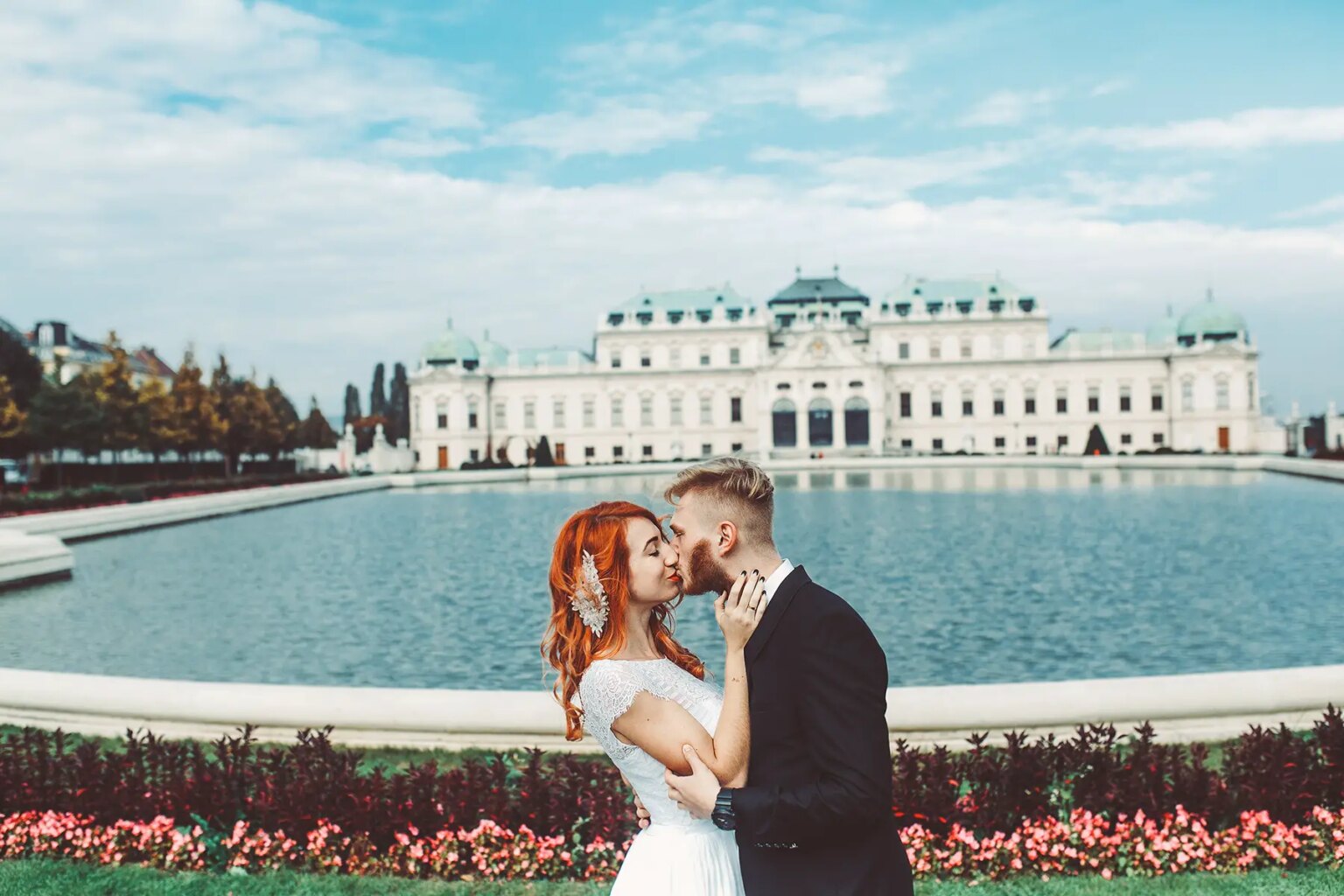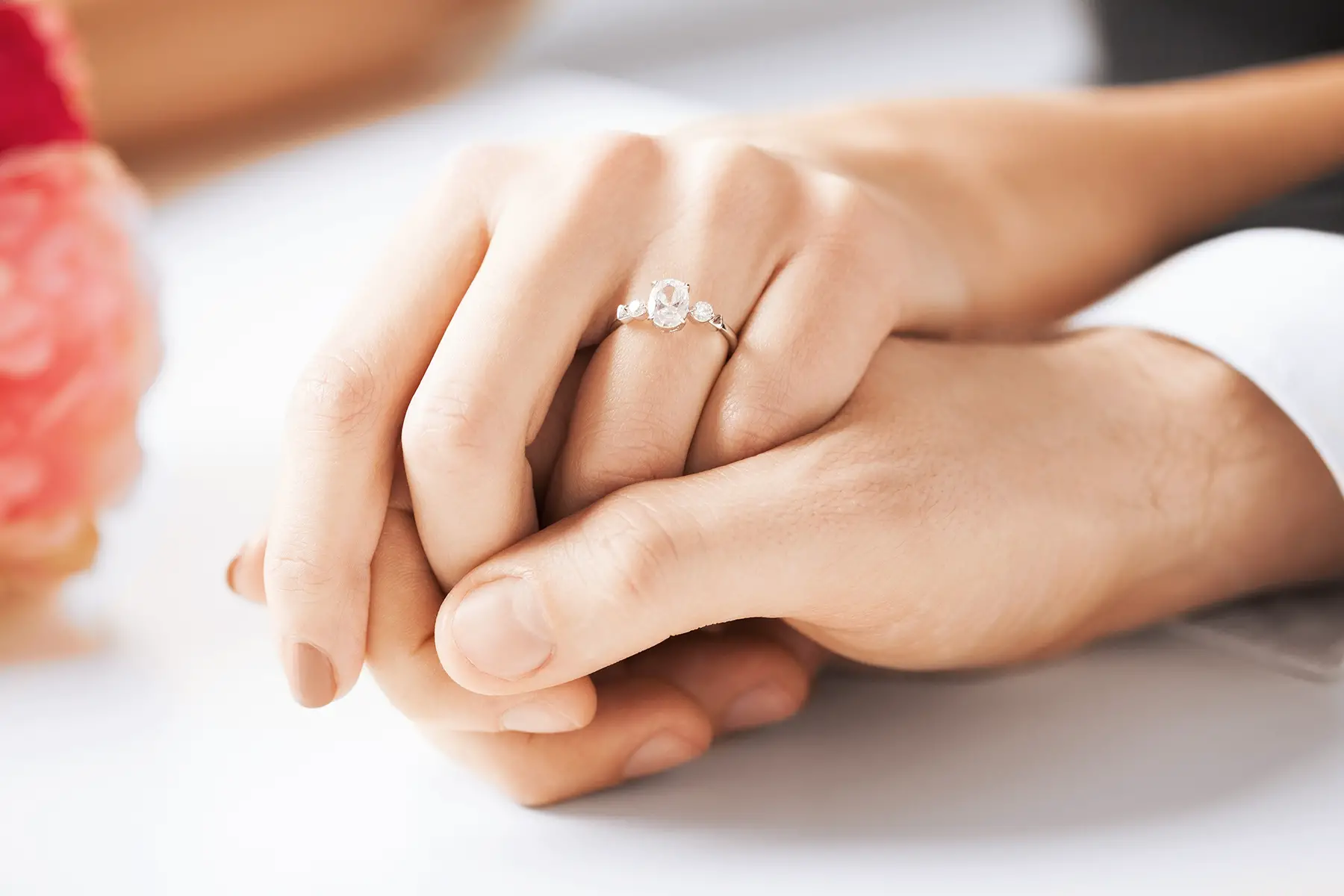Getting married in Austria can be a simple, stunning affair. And fortunately for couples, the country doesn’t place too many requirements on getting hitched. This makes it easier for expat couples in long-distance relationships to marry and live in Austria. However, the only legal wedding in the country is a civil ceremony and the process for this is quite simple. Because of this, many couples choose to have more lavish or religious ceremonies following this.
This helpful guide offers a complete overview of getting married in Austria, including the following information:
Cigna Global
Enjoy peace of mind while living in Austria with Cigna Global’s long-term international health insurance plans (12+ months). Get tailored coverage, direct billing with many providers, complex case management, and global care on demand, with access to a network of 1.5+ million doctors, specialists, and therapists.
An overview of marriage in Austria
In Austria, marrying is still very much a rite of passage. In fact, statistics show that in 2021, there were 41,111 marriages and 1,401 registrations of partnerships in the country. This is an increase over previous years, but a decrease from 2018. Furthermore, Austrians are waiting longer to marry. The average age of marriage has risen over the last decade to 26.5 years for women and 33 years for men.
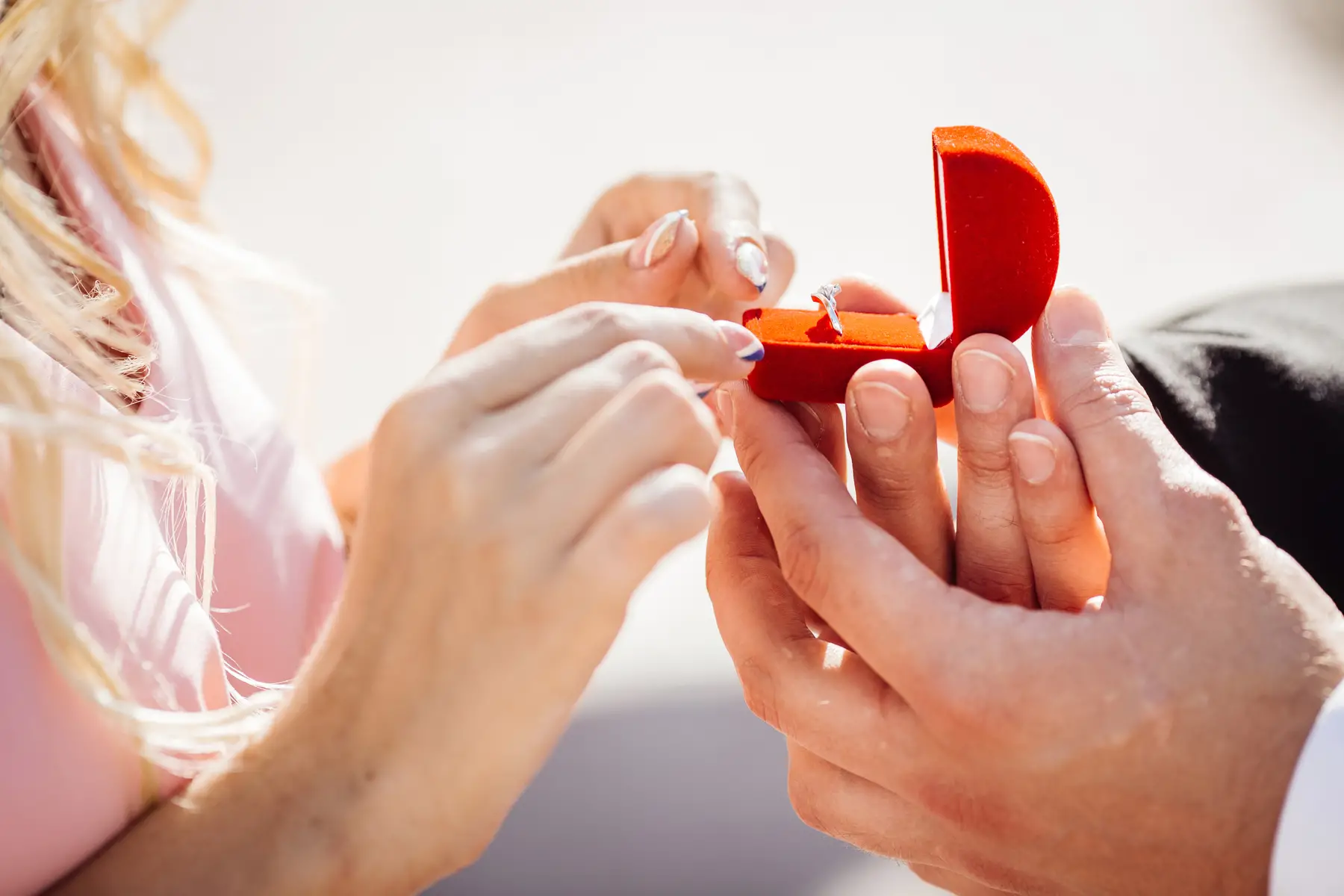
Legally, there are many benefits to getting married in Austria. This is especially true in the case of a divorce. In a divorce, spouses can claim maintenance, division of property, and appropriate child custody arrangements. However, in domestic partnerships, each individual will retain their own assets. Additionally, the mother will automatically receive child custody.
Although marriage continues to have legal benefits over other domestic partnerships, de factor partnerships and civil registrations remain popular. That is because there is an increasingly indulgent attitude towards cohabitation without marriage in Austria. Similarly, the younger generation of Austrians is putting off marriage to focus on other opportunities and waiting until they feel stable to marry.
Attitudes towards marriage in Austria
Austrians take a very European approach to marriage. While getting married in Austria is generally accepted as a fact of life, these attitudes come with plenty of caveats. This is especially the case among the younger generation.
This is partly because of a growing preference for cohabitation. Some Austrians even choose to have children without marrying. This is because younger Austrians feel that marriage may curb their freedoms and opportunities. In general, young Austrians view marriage as something to aspire to when they have found the right partner and both of them are in a stable situation. That means being financially secure, having an established career, and a solid social network.
Additionally, certain social factors incentivize the idea of marriage, including getting older, a long period of living together, having friends marry, or wanting to have children. That said, marriage is more expected in certain communities, such as those that are more religious or rural, or with less education.
What type of weddings are possible in Austria
If you want to get married in Austria, you will need to pay attention to the legalities because the only legal marriages are civil ceremonies. Therefore, it is only once the civil ceremony is complete that couples can host a different type of wedding ceremony. Additionally, only official registrars can officiate civil ceremonies.
Because Austrian society still has strong religious roots, church weddings conducted by a priest are very popular. However, given the stunning natural surroundings that are widely available in Austria, outdoor weddings are also popular.
The legal requirements to get married in Austria
If you are just considering the legalities, then getting married in Austria is a rather simple affair. This is because there aren’t many legal restrictions for couples who want to marry here. However, there are a few things you should know.
Requirements and rights in Austria
Expat couples thinking of getting married in Austria must meet some basic criteria. Age, of course, is a factor. Both men and women must be at least 18 years old in order to get married. However, if an individual of at least 16 years wants to marry, they may do so with consent from both parents. Their future spouse must also be at least 18 years old.

Surprisingly, residency is not an issue. Legally, there is no required minimum residency period for people who want to get married in Austria. You simply need to file the correct paperwork and go through the administrative procedures, which usually last two to four weeks.
To have a civil wedding, you will need to apply to the local Vital Statistics Office (Standesamt) or registrar’s office. Since these are the only legal marriages in the country, you have to complete the civil ceremony before any religious ceremony. The marriage service is in German. Therefore, if you don’t speak it well enough, you will need an interpreter.
Domestic partnerships in Austria
Apart from marriage, Austria recognizes different types of domestic partnerships. This is great for couples who prefer to live together without legally formalizing their relationship.
De facto partnerships in Austria
A de facto partnership is a couple who lives together and enjoys many of the same benefits as a married couple. This is a popular alternative to getting married in Austria. However, there are some important differences to be aware of.
For instance, there is no regulation of property in de facto partnerships. Because of this, there can be some confusion over succession rights. However, de facto partners can often manage or inherit properties, especially if there are no other heirs.
Gay marriage in Austria
Austria has recognized registered same-sex partnerships since 1 January 2010. However, it was only on 1 January 2019, that same-sex marriage became legal in Austria. Because of this, there were 632 registered gay marriages in Austria in 2021. On marrying, same-sex couples receive the same rights as all married couples in the country.
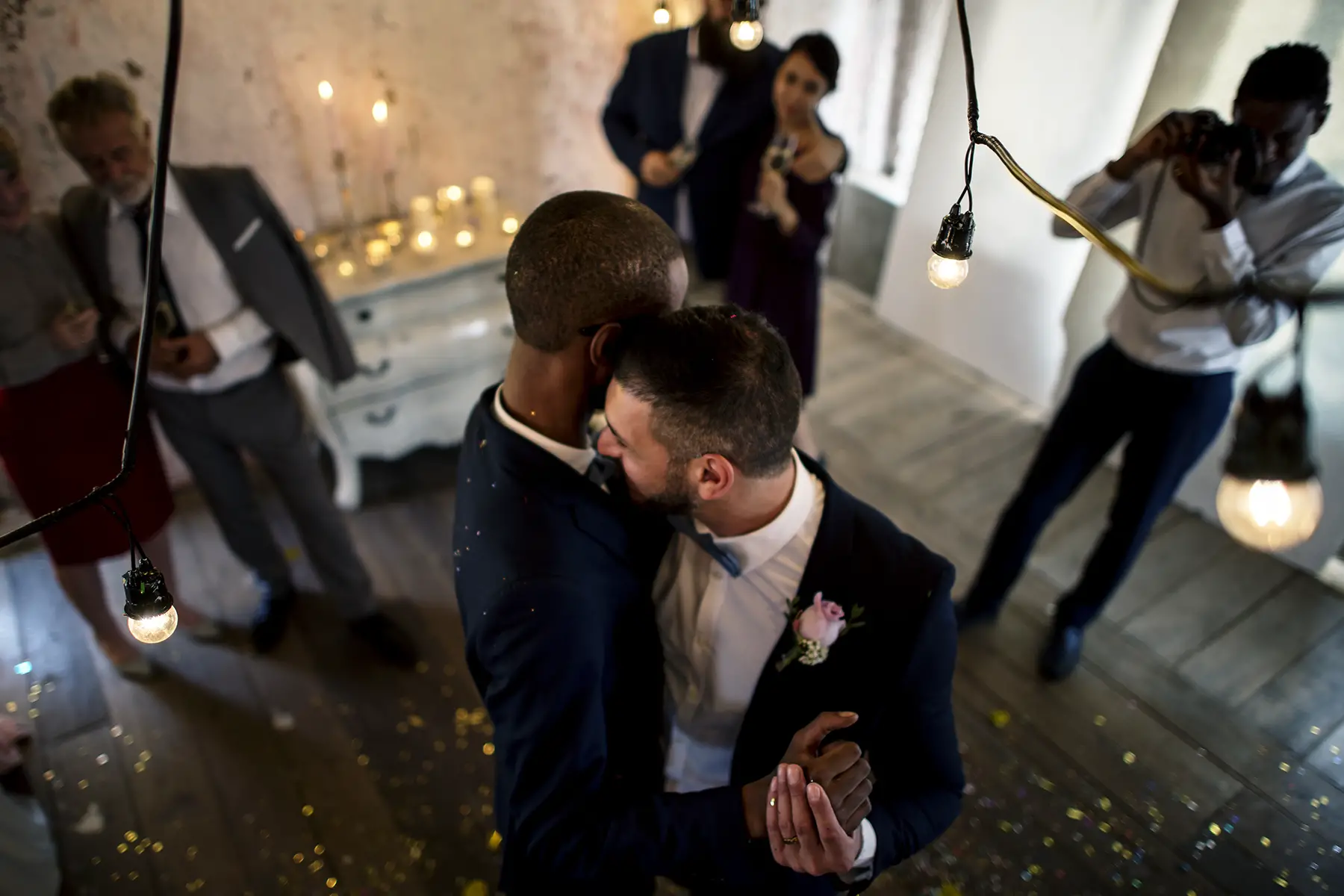
There is, however, one notable difference for same-sex couples who married overseas before it became legal in Austria. In order for their union to be legal in Austria, they need to divorce and marry again in the country. Read more about gay marriage in Austria.
Planning a wedding in Austria
As in any other country, getting married in Austria takes a little work. Even if you are just planning a simple civil ceremony, you will need to gather the right documents. For a bigger ceremony and reception, however, you will need to spend a lot more time planning the wedding. Here are some things to think about when planning your big Austrian wedding.
Getting married in Austria: step by step
To legally marry in Austria, you will need to register for a civil ceremony. Generally, this is a rather simple process but can take some time. As such, you should begin collecting the necessary documents from your home countries six months before the wedding. You can make a reservation for your wedding date online or in person at the local registrar’s office up to six months before the planned date.
Planning a wedding in Austria is very similar to the process in other European countries. Below is a detailed step-by-step guide:
- 1 year out: Decide on a budget and guest list, locate a wedding venue, and find a wedding planner.
- 10 months out: Start looking for and booking vendors, including caterers, florists, entertainment, and photographers.
- 8 months out: Send out save the dates, go dress hunting, and finalize your guest list.
- 6 months out: Start collecting documents to register the marriage and make reserve the registrar. This is also a good time to create your wedding website and plan your honeymoon.
- 4 months out: Shop for wedding rings, smaller decorative items, and guest favors.
- 3 months out: Send out the invitations, book hair and makeup trials, and organize transport for your big day.
- 2 months out: Finalize music and entertainment, and the menu.
- 1 month out: Get the final guest list together, and create a floor plan or seating chart.
- 2 weeks out: Send a shortlist to your photographer and confirm an on-the-day run sheet.
- 1 week out: Collect the dress, suits, and accessories, and host a rehearsal dinner.
Necessary paperwork and documentation in Austria
If you want to get married in Austria, you will have to deal with some paperwork to make sure your union is legal. Both parties will need to provide some documents, including:
- Passports
- Birth certificates
- Driver’s license or similar document that indicates their place of residence
- Residence registration forms issued by Austrian authorities
- Anyone that has married before will also need to show the marriage certificate from that union. They will also need to show proof of the dissolution of that marriage or a death certificate of the previous spouse.
- If either party has children, they will need to produce the children’s birth certificates, proof of nationality, and proof of residence.
Any documents that are not written in German must be accompanied by verified German translations provided by a translation service such as lingoking. Additionally, before the wedding, both partners must go to the registrar’s office in person. This is because the registrar’s office will conduct an oral interview alongside the filed documents to determine the couple’s marriageability.
The cost of getting married in Austria
The type of wedding you want will shape how much you can expect to pay to get married in Austria. You will need to pay a series of administrative fees, such as the marriageability interview (€50) and foreign certificate submissions (€130). Additionally, you will have to pay federal administrative fees. These differ depending on the circumstances of the wedding but generally range from between €5.45 and €54.50.
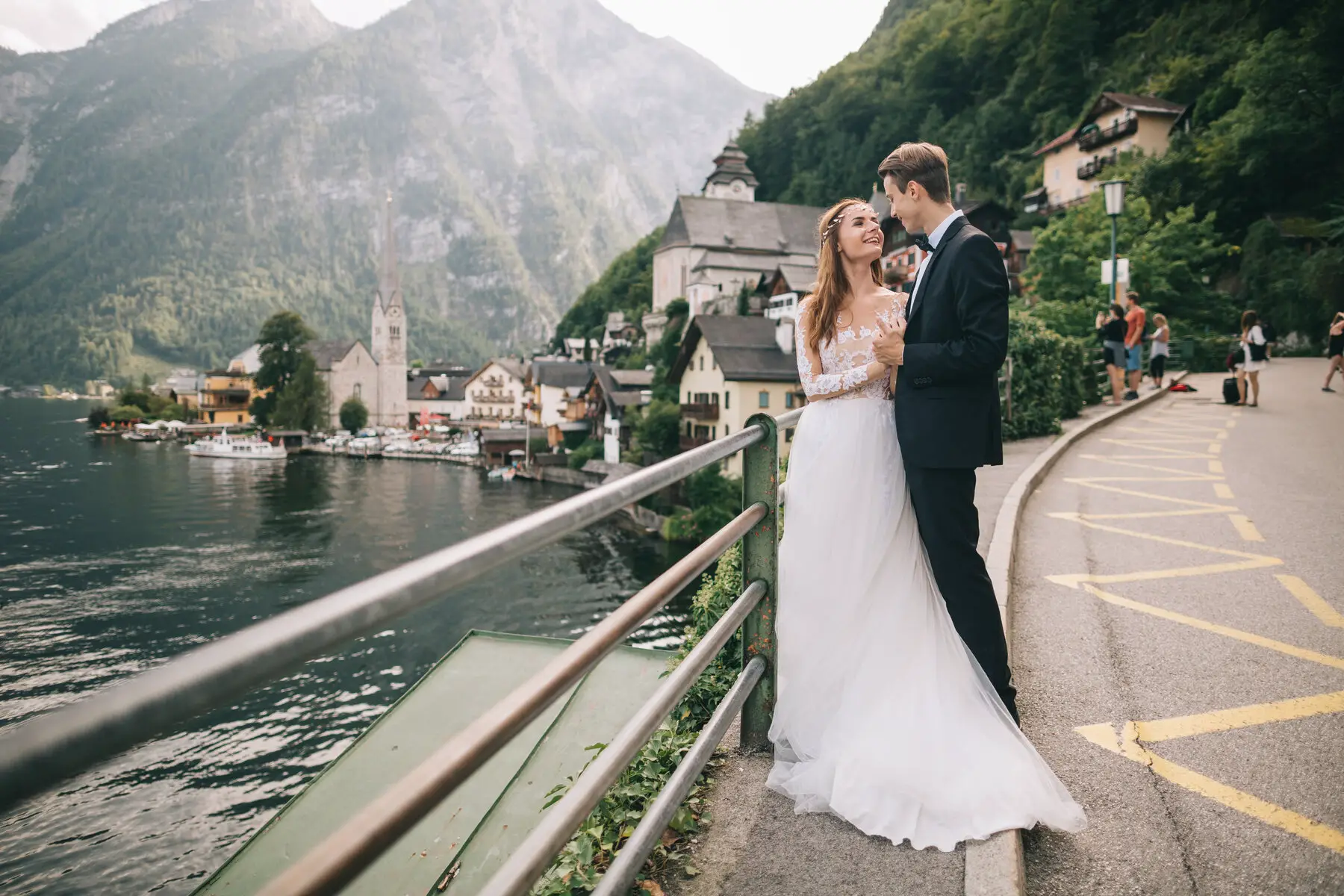
If you plan to hold a ceremony alongside the civil solemnization, you can expect to pay much greater costs. However, the exact amount will depend on how big or small your wedding is. In general, you should expect to pay a few thousand euros for a small wedding and in the tens of thousands of euros for a big wedding. Many in-demand locations – such as Vienna’s Schönbrunn Palace – will charge a venue fee of around €4,000. However, some venues will offset this if you spend a lot on food and drinks for your wedding. Below is a list of average prices of a mid-sized wedding in Austria:
- Food and drinks: €75/person
- Photos: up to €2,500
- Music: €1,500 (note: DJs are cheaper than bands)
- Flowers: up to €1,500
- Transport: €300 (for limousines, carriages, etc.)
- Makeup: up to €200
Austrian wedding locations and traditions
If you are planning a wedding in Austria, administrative tasks are only part of the puzzle. Couples marrying in the country have many other things to take into account. This might include where they want to marry, the type of ceremony they want, and what traditions they want to incorporate.
The best wedding locations in Austria
Austria is a paradise for weddings. There is a host of regal venues, beautiful hotels, elegant museums, and outdoor destinations that make the perfect backdrop for weddings. In Vienna, in-demand wedding locations include the Hofburg, Schönbrunn Palace and its’ Orangerie, and Belvedere Palace. Couples looking for a little quirk in their venue often opt for the MuseumsQuartier and its many museums – including the Albertina – or the breathtaking National Library. If you want to keep things simple and sophisticated, however, the Hotel Bristol Vienna and Hotel Sacher are top choices.
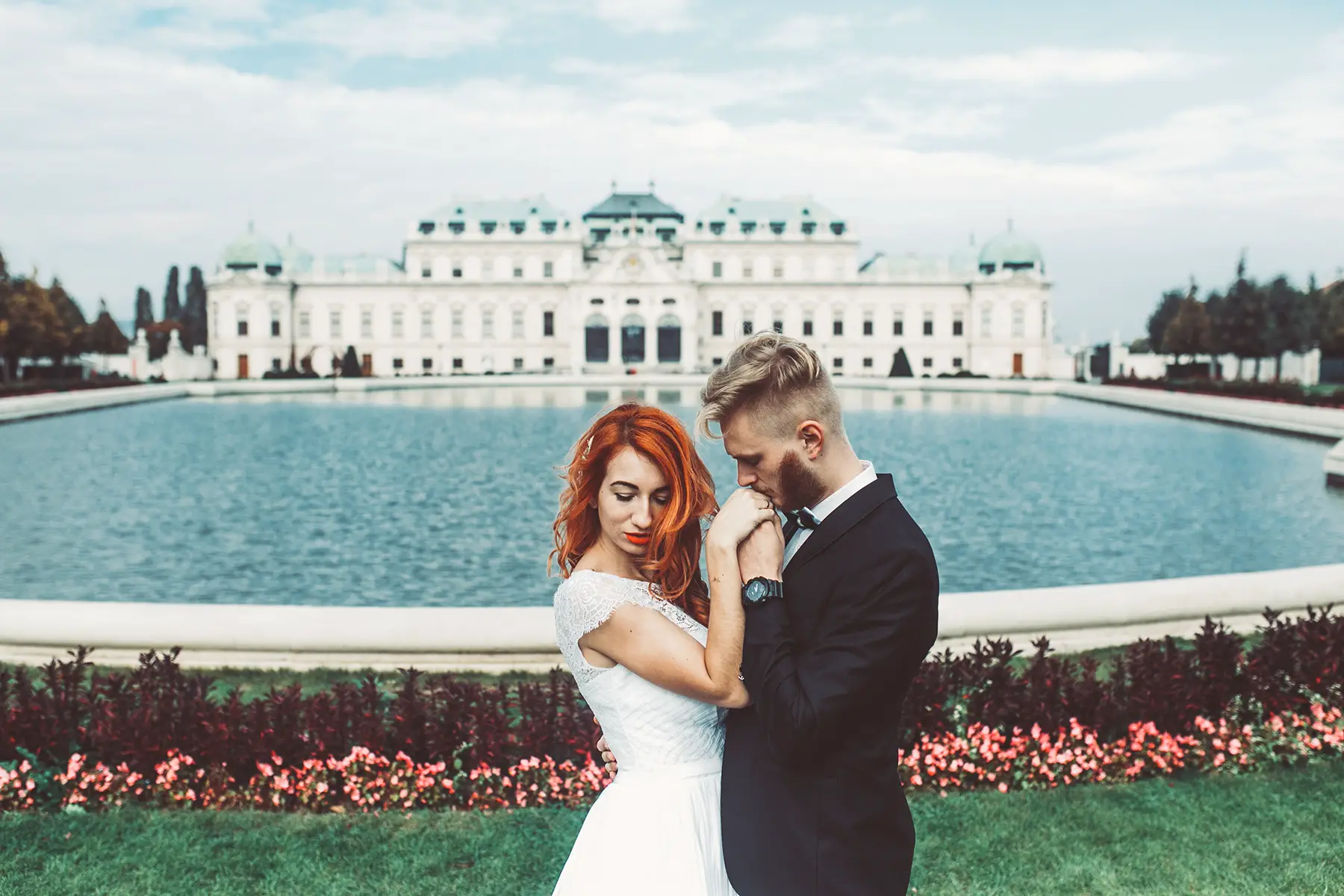
For ceremonies with a religious tone, Austria boasts a plethora of churches. Vienna’s St. Stephen’s Cathedral is a popular choice in the capital. The Mondsee, outside Salzburg, is also famous for the wedding scene in The Sound of Music and a top pick. Monasteries are also a great choice. For instance, many couples are drawn to the tranquil Stift St. Florian in Upper Austria.
Want an outdoor wedding? You will have plenty of options in Austria. If you are dreaming of an ethereal outdoor wedding, there’s no better venue than Hochzeitswald forest outside Graz. Lakes and mountain tops are also very popular. Check out Lake Weissensee, Lake Fuschl, and Lake Wörthersee. With so many incredible places to host a wedding, Austrians tend to stay in the country for their big day rather than go overseas. Austria is also a popular spot for incoming destination weddings.
Wedding traditions and customs in Austria
There are plenty of wedding customs and traditions to consider in Austria. Some of these will be familiar to internationals. Think dress shopping with female relatives, and having the father walk the bride down the aisle and give the first speech at the reception. Others are a little more unique.
Separate rooms
For instance, usually, the bride and groom spend the night apart, and there is a good reason for this in Austria. On her wedding day, a bride often wakes to a three-shot gun salute or loud music. This protects her from evil spirits and marks a new chapter in her life. Austrian brides are also kidnapped before the wedding and her groom has to track her down to prove he deserves to marry her.
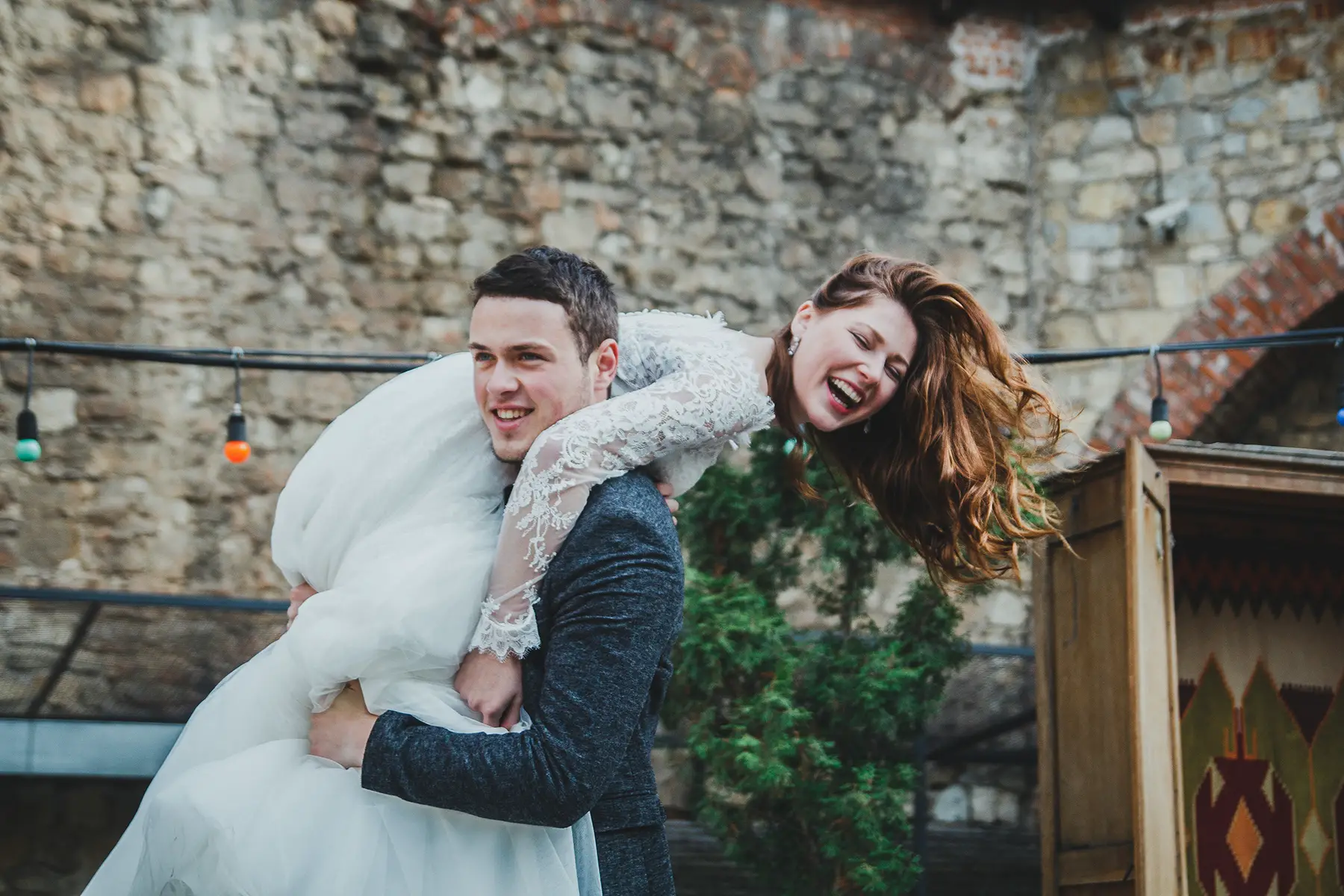
Another popular tradition is the agape, a Catholic custom. Often held immediately after the ceremony, this is a traditional holdover from Austria’s more religious days. Although it usually involves consuming bread and white wine, many modern couples now offer canapés and Champagne instead.
Giving gifts
Another common custom is for the bride and groom to exchange wedding gifts. In the past, a groom presented his bride with a gift as a mark of financial stability – often, this was land or a castle. These days, it is more common for bridal gifts to be expensive jewelry.
The wedding dress
Outfits play an important part in any wedding. You have probably heard the adage of brides wearing something old, something new, something borrowed, and something blue at their ceremony. However, in Austria, wedding outfits have their own customs. Because it is bad luck for a bride to make her own dress, her female relatives will traditionally do this for her. These days, though, most brides just buy their wedding dress. Similarly, a bride must wear a veil to protect herself from evil spirits.
The luckiest day
There are also many traditions surrounding the ceremony itself. For instance, Austrians consider Wednesday to be the luckiest day of the week. Because of this, many weddings occur then. Additionally, the first dance is almost always a waltz, because that particular dance has a long history in Austrian culture.
Useful resources
- City of Vienna – provides information about getting married or entering into a civil partnership in Austria
